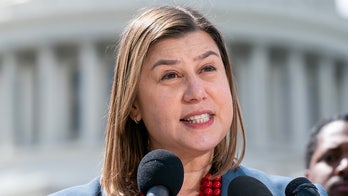As Republicans in Washington debate how to fight Obama’s executive action, the real battle could take place in state legislatures that have a say over how exactly to carry out the plan.
For starters, states will have to provide proper outreach and support to help the immigrants figure out how to apply for deferred action – and state governments can vary their efforts in reaching out to undocumented populations offering assistance.
An estimated 3.7 million undocumented immigrants who are parents of U.S. citizens or legal permanent residents are expected to benefit from Obama’s new deferred action program. An additional 1.5 million people will be eligible for temporary deportation relief and work permits under the expansion of Obama’s 2012 Deferred Action for Childhood Arrivals Program or DACA.
About 45 percent of eligible applicants under 2012’s DACA have yet to apply, and some attribute that to lack of outreach services in rural and urban communities that are less connected and trusting of government institutions.
“Washington can make these orders but these things happen in localities,” said Muzaffar Chishti, a lawyer and director of the Migration Policy Institute (MPI) at New York University’s School of Law. “How activist or how resistant states or localities are in making this a success will be hugely impactful.”
Another instance of the states’ control has to do with driver’s licenses. All those who qualify under Obama’s executive action are eligible to apply for driver’s licenses; states could have to issue thousands or hundreds of thousands of new ones – unless governors or state legislators enact legislation specifically banning these undocumented immigrants from receiving licenses. In 2012, Nebraska and Arizona passed laws banning driver’s licenses for those who qualified for DACA, which protects certain young undocumented people from deportation.
States can also decide whether or not these immigrants can qualify for in-state tuition at public universities. Twenty states offer in-state tuition to undocumented immigrant students following action taken by 16 state legislatures and by four university systems.
Another state-by-state decision will come down to whether lawmakers or governors will allow immigrants to apply for state-funded health insurance programs. Some states, such as California, Washington, Massachusetts, Minnesota, New York, and Washington, D.C., have opted to provide health insurance to low-income DACA recipients through state-funded programs. These programs could cost the states millions of dollars – which some are already arguing could place a heavy burden on states already strapped for cash.
"The cost to the people of the state of Texas is an extraordinary amount of money that this President is exacerbating with his announcement that he's going to allow for this executive order," said Texas Gov. Rick Perry at the Republican Governors Association in Florida.
“If we're paying more in that area, that means less for schools, for colleges, for universities, for higher education overall,” Governor Scott Walker (R-WI) told Fox News. “It means less money for the things that we find important because of this move.”
But others said any added costs to the states would be offset by an increased tax base.
“There will be a cost attached to the integration of these people and some states may ask for a federal reimbursement,” Chishti said, but on the other hand, “you could arguably say that the tax base of the country will increase because the assumption is that these people will now work legally, have social security and pay taxes they haven’t paid before.”
Under DACA, some states went out of their way to accommodate undocumented immigrants, particularly California which passed laws to make it easier for immigrants to get subsidized health insurance, in-state tuition for students, financial aid, and professional licenses to practice law and medicine.
Some immigrant rights groups are already preparing themselves for executive action. In California, the Coalition for Humane Immigrant Rights of Los Angeles told the Los Angeles Times that they were hiring additional staff to help hundreds of thousands of people in the state that may qualify for relief.
However, a spokesman for the group said the announcement will be bitter-sweet because there will be thousands of other immigrants who will not be part of the reprieve.
"There is excitement but there's disappointment at the same time because we know that there are a number of our loved ones who will potentially benefit from this relief and many who will be left out," Jorge-Mario Cabrera, a spokesman for the group, told the Times.
According to MPI data, two-thirds of the 5.2 million people who will be eligible for temporary deportation relief and work permits live in just six states: California, Texas, New York, Illinois, Florida, and New Jersey.
What remains to be seen is how states with newer populations of undocumented immigrants will respond to Obama’s new program, particularly in states like Nebraska, Idaho, Pennsylvania, and Maryland – some of the seven states that saw their undocumented immigrant population increase since 2009.
“States do have choices as to how they can prepare and to what degree they will provide resources,” said Adam Hunter, Director of Pew’s Immigration and the State’s Project at The Pew Charitable Trusts. “The new gateway states don’t have the same traditions as long standing immigrant destinations.”




